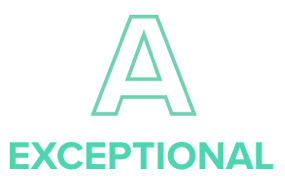Protect Your Practice
and Your Clients with
Court & Probate Bonds
FOR FAST,
AFFORDABLE,
BONDS
NATIONWIDE
WE'VE GOT YOU
COVERED
The Bar Plan offers a full range of probate and other court bonds, underwritten by experienced, knowledgeable underwriters. We offer a quick turnaround (typically 24-48 hours) and competitive rates.
PROBATE
BONDS
These bonds are required for administrators, executors, guardians, conservators, and others to guarantee faithful performance of duty in accordance with the law.
Learn More
NOTARY
BONDS
Notary bonds guarantee notary compliance to protect the state and public from possible damages due to improper acts.
Learn More
CIVIL COURT
BONDS
This is a general term covering all bonds and actions required of participants in a lawsuit, permitting participants to pursue certain remedies in the courts.
Learn More
PUBLIC OFFICIAL
BONDS
A public official bond is issued to guarantee the performance of a public official, who may be responsible for overseeing public funds or collecting fees.
Learn More
DOWNLOAD BOND APPLICATION
APPLY ONLINE
The Evidence Is In the Numbers

Our team members have an average of 20 years of legal and insurance experience.

The Bar Plan is the only endorsed carrier for both The Missouri Bar and a preferred provider for the Tennessee Bar Association for LPL Insurance and Court Bonds.

The Bar Plan's financial stability has consistently been rated A, Exceptional by Demotech, Inc.
Frequently Asked Questions
Do I have to be an attorney to fill out the application?
No, but The Bar Plan does require you to retain an attorney throughout the life of the bond.
How quickly will the bond be issued?
The Bar Plan has a 24-hour turn-around service providing we have received all of the information requested.
Is payment required upfront?
Only for small estate bonds, notary bonds and endorsements.
How do I send in my application?
You may send in your application by:
Fax: 888-658-6761
Email: bonds@thebarplan.com
Mail: ATTN: Bond Department, 622 Emerson Road, Suite 100, St. Louis, MO 63141
Does The Bar Plan send the bond to the court?
No, the bond package is sent to the attorney. The attorney must obtain the principal's signature and have the principal's signature notarized. Once these signatures are obtained the attorney should then file the bond and the power of attorney with the court.
Does the indemnity need to be notarized?
No, The Bar Plan only requires a witness' signature. Anyone (over the age of 18) can serve as a witness.
Can I get a premium quote?
Yes, please call The Bar Plan's Bond Department at 877-553-6376 or visit www.onlinecourtbonds.com and click on the Quick Quote Button.
How do I cancel my bond?
The Bar Plan requires a copy of the court order discharging bond/fiduciary to cancel their bond.
If the bond is canceled within the first year, will you return any unearned premium?
No, the first year's premium on ALL bond types is fully earned and there is no refund.
If the court enters an order fully restricting all the assets in a probate estate so that funds cannot be released without a court order, do you continue to charge a renewal premium for that bond?
No, not on a bank account. If the bank provides a verification of restricted account for the full amount of the assets in the estate AND the Bond amount is reduced to $2,000 or less, no further premium will be charged as long as the full amount stays restricted and the reduction of the bond penalty remains in place. The principal may also receive a pro-rated return on the premium already paid depending on the date the funds were restricted and the bond amount reduced.
If I pay the renewal premium and the estate closes shortly after the renewal date, will I get any of that premium back?
Yes, to the extent the amount of premium attributable to that portion of the year that the bond is not needed exceeds the minimum premium of $150, e.g.: If an estate closes 3 months after the bond renews and the bond renewal premium is $250, to calculate the "unearned premium" you multiply the bond renewal premium by the percentage of the year the bond is not needed. ($250x.75). The unearned premium amount in this example is 187.50. The total bond amount less the unearned premium is the "earned premium". 250-187.50=62.50. Since the "earned" amount is less than the $150 minimum, $150 will be retained and the difference ($100), will be returned to the principal.
Do you require joint control/restriction? (this means that someone in addition to the fiduciary must approve the release of funds from the estate bank account.)
We DO require joint control/restriction in Conservator estates AND for Trustee's bonds. Joint Control Procedures: Two bank accounts are established: one that is subject to the two-signature withdrawal requirement; and a working account under the sole control of the fiduciary. The working account is initially funded with enough money to cover the reasonable and anticipated expenses of the ward for a one-year period. All other assets are placed in the joint control account and/or in a safe deposit box subject to the joint control agreement. If the working account is properly funded, the attorney should only need to be involved once per year in authorizing the annual funding of the working account. Restriction Procedures: The fiduciary petitions the court to restrict all assets of the estate. Upon receiving the court order, the fiduciary must have a Verification of Restriction form executed by the financial institution (bank or brokerage firm) holding the assets confirming that all assets are restricted and cannot be withdrawn without a court order. The executed form must be filed with the probate court and a copy sent to the surety company. Note: There are some exceptions to the joint control/restriction requirement.